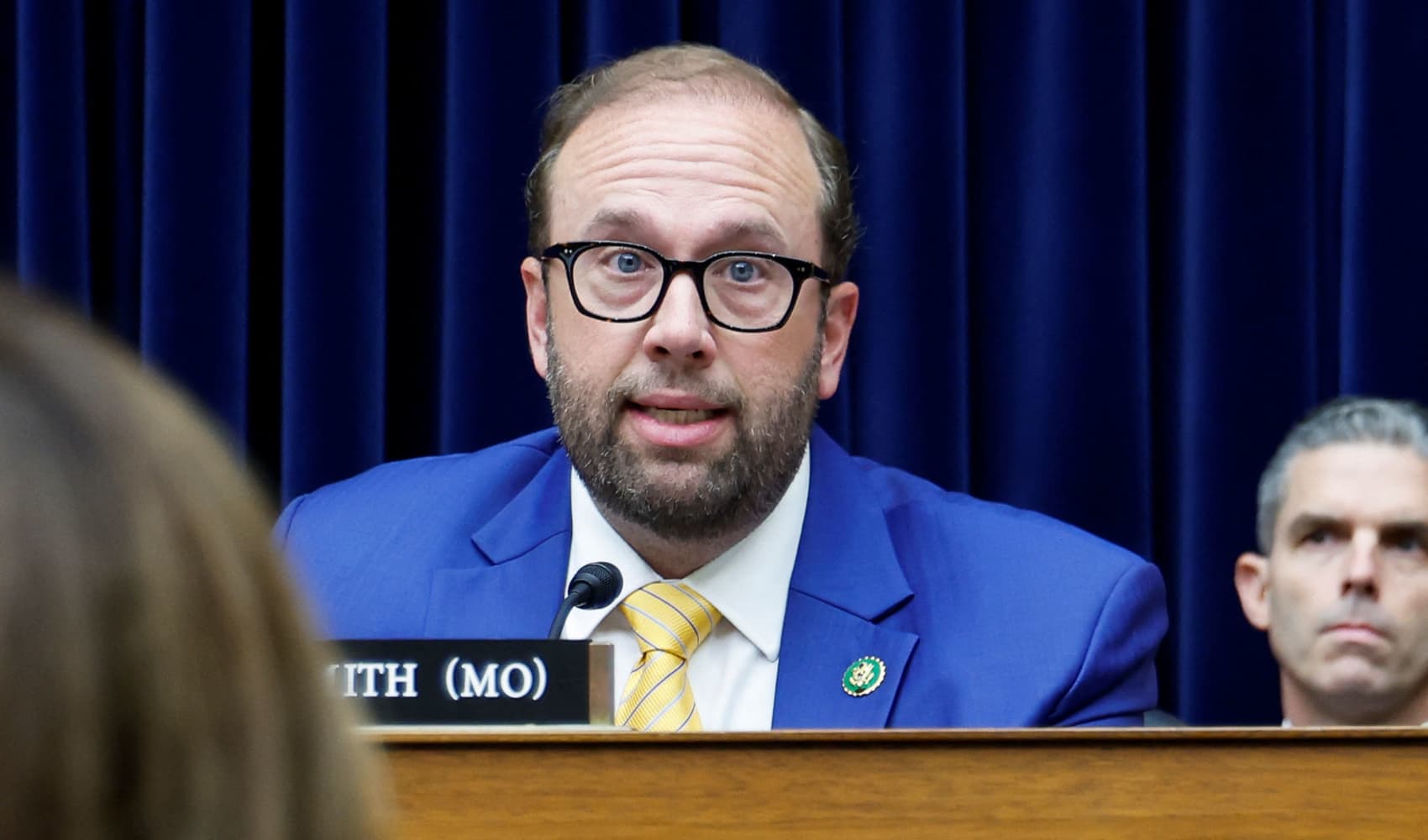Trump's Investor Appeal: Bessent's Roadmap to Success
Trump's Investor Appeal: Bessent's Milken Conference Pitch
Introduction: Making America Great Again for Investors
Ever wonder what it takes to attract serious investment to a nation? Well, picture this: a room full of global investors, eager to hear how the United States plans to stay competitive. That’s precisely the scene at a recent Milken Institute conference, where Treasury Secretary Scott Bessent laid out President Donald Trump’s vision for the American economy. The message? America's open for business, and we're rolling out the red carpet for your capital!
Bessent's "America First" Roadmap: A Three-Pronged Approach
Bessent didn't mince words. He presented a clear, concise plan centered around three key pillars. Think of them as the legs of a sturdy investment stool: tariffs, tax cuts, and deregulation. Each element is designed to create a more favorable environment for businesses and investors. But are these strategies the golden ticket to economic prosperity? Let's dive deeper.
Tariffs: A Double-Edged Sword?
Tariffs, the first pillar, are essentially taxes on imported goods. The idea is to make foreign products more expensive, thereby encouraging consumers to buy American-made goods. It's like giving domestic industries a little push in the right direction. But here's the rub: tariffs can also increase costs for businesses that rely on imported materials, and they can spark retaliatory measures from other countries, leading to trade wars. So, are tariffs a calculated risk or a recipe for disaster?
Tax Cuts: Fueling the Economic Engine
Next up, tax cuts. Lowering taxes for corporations and individuals is designed to put more money in their pockets, incentivizing them to spend and invest. The hope is that this increased economic activity will lead to job creation and overall growth. It's like pouring gasoline on an economic engine. Will it roar to life, or will it simply burn too fast? The proof, as they say, is in the pudding.
Deregulation: Cutting Through the Red Tape
Finally, deregulation. The Trump administration has been aggressively rolling back regulations across various sectors. The argument is that these regulations stifle innovation and hinder economic growth. It's like removing the speed bumps from a race track, allowing businesses to accelerate. But, of course, regulations are often in place for a reason, whether it's to protect the environment, ensure consumer safety, or prevent financial instability. Finding the right balance is crucial.
The "America First" Philosophy: What Does It Really Mean?
“America First” is more than just a slogan; it’s a guiding principle. It suggests a focus on prioritizing domestic interests and ensuring that U.S. businesses and workers are given a competitive advantage. But what are the implications for international relations? And does it risk alienating key trading partners?
Global Investor Reaction: Optimism or Skepticism?
The million-dollar question is, how did the global investors react to Bessent's pitch? Were they convinced that Trump's policies would indeed make America a more attractive investment destination? Or did they remain skeptical, citing concerns about trade wars, economic uncertainty, and the potential for protectionist measures? The answer likely varies from investor to investor, depending on their individual perspectives and risk tolerance.
The Promise of a More Appealing America: Bessent's Assurance
Bessent explicitly stated that the administration’s goal is to make the U.S. “even more appealing for investors.” That's a bold statement. But how does the administration plan to achieve this goal in practical terms? What specific measures are being taken to address the concerns of global investors and alleviate their anxieties?
Trade Negotiations: A Key to Future Success?
As Bessent spoke, markets were anxiously awaiting news about ongoing trade negotiations with key partners. These negotiations are crucial because they will shape the future of international trade and investment flows. A successful resolution could boost investor confidence and lead to greater economic cooperation. But a breakdown could trigger further trade tensions and undermine global growth.
The Role of Government Waste Reduction: A Fiscally Responsible Approach
Bessent also mentioned the administration's efforts to "uproot government waste." This suggests a commitment to fiscal responsibility and efficient use of taxpayer dollars. By streamlining government operations and eliminating wasteful spending, the administration hopes to free up resources for other priorities, such as infrastructure investment and tax relief.
Harmful Regulations: Identifying and Eliminating the Obstacles
According to Bessent, the administration has also been working to remove "harmful regulations." This implies that some regulations are considered to be detrimental to economic growth and should be eliminated or reformed. But defining which regulations are truly "harmful" is a complex and often controversial process.
The "Planted Seeds": Investing in the Future
Bessent stated that the administration had “planted the…” Unfortunately, the quote is cut off in the provided text, but we can assume he was referring to investments in areas like infrastructure, technology, or education, all crucial for long-term economic growth. It's about sowing the seeds for a brighter future.
Beyond the Headlines: Digging Deeper into the Data
Analyzing Key Economic Indicators
To truly assess the impact of Trump's economic policies, it's essential to go beyond the headlines and analyze key economic indicators, such as GDP growth, unemployment rates, inflation, and investment levels. Are these indicators trending in the right direction? And how do they compare to those of other countries?
Monitoring Market Sentiment and Investor Confidence
Market sentiment and investor confidence are also crucial barometers of economic health. Are investors feeling optimistic about the future prospects of the U.S. economy? Or are they becoming increasingly cautious and risk-averse? Tracking these sentiments can provide valuable insights into the potential impact of Trump's policies.
Potential Challenges and Risks: A Word of Caution
While the Trump administration's economic agenda may offer some potential benefits, it also faces significant challenges and risks. These include the potential for trade wars, rising national debt, and increased income inequality. It's essential to be aware of these risks and to carefully monitor their potential impact on the economy.
The Long-Term Outlook: Sustainable Growth or Short-Term Gains?
The ultimate question is whether Trump's economic policies will lead to sustainable long-term growth or simply provide a temporary boost to the economy. Will the benefits outweigh the costs? And will the policies create a more equitable and prosperous society for all Americans? The answer will depend on a variety of factors, including the effectiveness of the policies themselves, the global economic environment, and the ability of policymakers to adapt to changing circumstances.
Conclusion: A Bold Vision, Uncertain Future
Scott Bessent's presentation at the Milken Conference painted a picture of an America eager to attract global investment through tariffs, tax cuts, and deregulation. The "America First" vision aims to create a more favorable environment for businesses and investors, but faces potential challenges like trade wars and rising debt. Whether this roadmap leads to sustainable growth or short-term gains remains to be seen, but one thing is certain: the world is watching.
Frequently Asked Questions
What are the main components of Trump's "America First" economic agenda?
The core components are tariffs on imported goods, tax cuts for corporations and individuals, and deregulation across various sectors of the economy. These are designed to boost domestic production and attract investment.
How do tariffs impact global investors?
Tariffs can create uncertainty in global markets, potentially leading to trade wars and decreased investment. However, they can also make the U.S. more attractive for companies looking to produce goods within the country.
What are the potential benefits of deregulation?
Deregulation aims to reduce the burden on businesses, allowing them to operate more freely and innovate faster. This could lead to economic growth and job creation, but also carries risks if not balanced with necessary protections.
What role do trade negotiations play in attracting investors?
Successful trade negotiations can foster greater confidence in the global economy, attracting more investors to the U.S. A stable trade environment is seen as a key factor in long-term economic growth and stability.
How can the U.S. ensure long-term sustainable growth under this economic plan?
Ensuring sustainable growth requires careful management of the national debt, investing in infrastructure and education, and promoting innovation. It's also crucial to address income inequality and ensure that the benefits of economic growth are shared by all.





